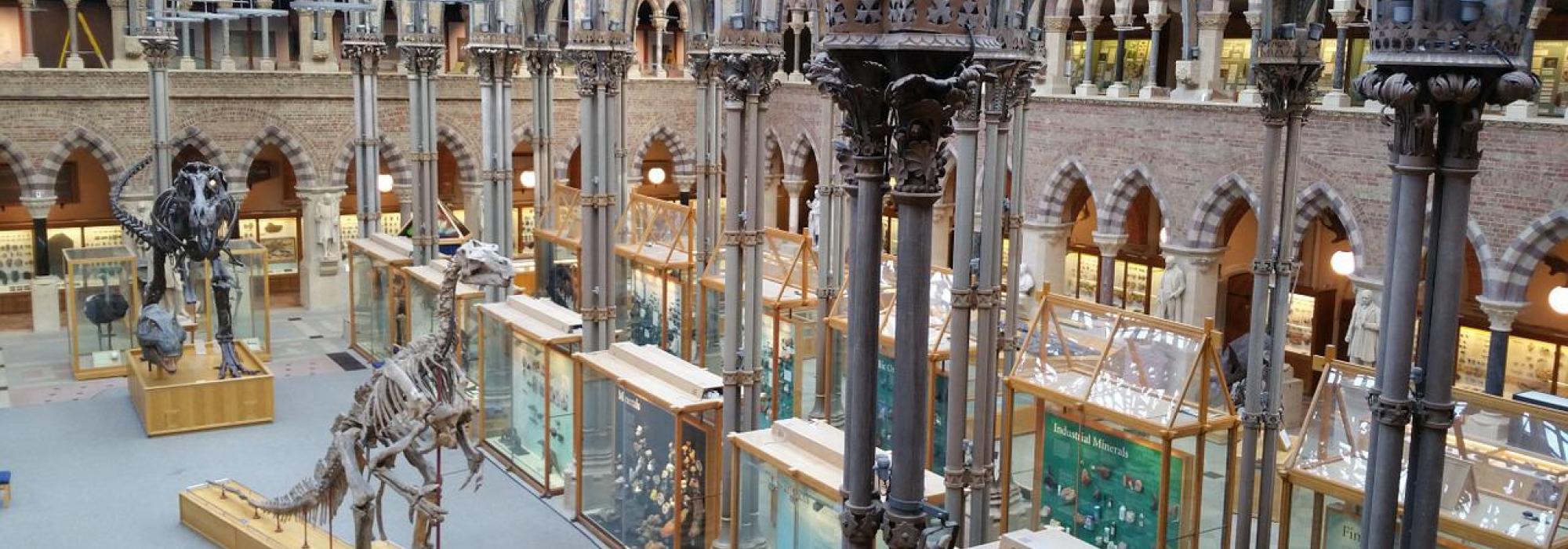
LSRI participates in University of Oxford conferences
Key Details
This summer Carlos Zepeda, Assistant Director in Policy and Practice at the LSRI, participated in two international conferences held at the University of Oxford:
Nature-Based Solutions Conference, University of Oxford (July 5-7th 2022)
Held in person and online at the Oxford University Museum of Natural History, this conference explored in depth an emerging approach that has come to be known as “Nature-Based Solutions” (NbS). This approach has been increasingly influential in shaping ecological governance across several worldwide institutions and policy frameworks, including the United Nations Environment Programme (UNEP), the International Union for Conservation of Nature (IUCN), the World Resources Institute (WRI), and the International Institute for the Environment and Development (IIED) among others.
Carlos joined the three days of discussions and concluded: "It was refreshing to see diverse perspectives from academics and practitioners across the globe united in reflection to explore the multifaceted aspects – the good, the bad, and the ugly – of the influential approach of Nature-Based Solutions to ensure it can be truly transformative and useful in bringing changes for the common good.”
“I was especially delighted to engage in frank discussions about the non-tokenistic inclusion of indigenous voices, and what NbS should mean, not as a static top-down doctrine, but more as an ongoing guiding set of principles that should always embrace the defence of the most vulnerable communities and ecosystems in our planet. I thoroughly believe that its core principles echo with ideas from those that believe this planet can be transformed into a more sustainable and eco-just community, but it must not be imposed or controlled from a Western societal point of view. From an integral ecology perspective, I applaud the visible effort of the organisers to include more variety of marginal voices such as those of indigenous communities and grassroots eco-defenders from the developing world to enrich the discussions. More could be done of course, but I would say the key is to observe how power relations are shaping the opportunities and potential risks for this approach, such as ‘greenwashing’, or blindness to the interconnected aspects of power, social injustice, and values.”
6th Annual Conference on Poverty and Business, University of Oxford (July 26-27th 2022)
The LSRI, in collaboration with Catholic International Development Charity (CAFOD), hosted a panel at the 6th Annual Oxford Business and Poverty Conference on Housing held at the historic South School of the Examination School at University of Oxford.
Carlos chaired the panel entitled ‘Our Common Home: Understanding the Interconnected dynamics of Homelessness’, which included a lively discussion with Dr Carmody Grey, Professor of Catholic Theology at the University of Durham and former Visiting Research Fellow at LSRI, Dr Rachel Valbrun, an architect and urban designer from University College London with a research interest in post-disaster reconstructions, with particular experience in the post-reconstruction of Haiti after the 2010 earthquake, and Fr Angus Ritchie, an Anglican priest and Director of the Centre for Theology and Community.
Carlos commented: ‘This conference on the intersection of poverty, business, and housing was not familiar territory for the LSRI, but the integral ecology paradigm calls us to discern policies and practices through interconnected lenses that critically dissect how the cry of the poor and the cry of the Earth can be addressed as a united, holistic affair. I was so glad to have been able to discuss precisely this issue with the enriching and thought-provoking ideas from Fr Angus Ritchie, Dr Carmody Grey, and Dr Rachel Valbrun. You’d be surprised to learn how a humble broccoli could symbolise our localised interconnectedness with our planet, our actions, and our conception of what we can do to make homelessness an injustice that must not exist in our Common Home.’

